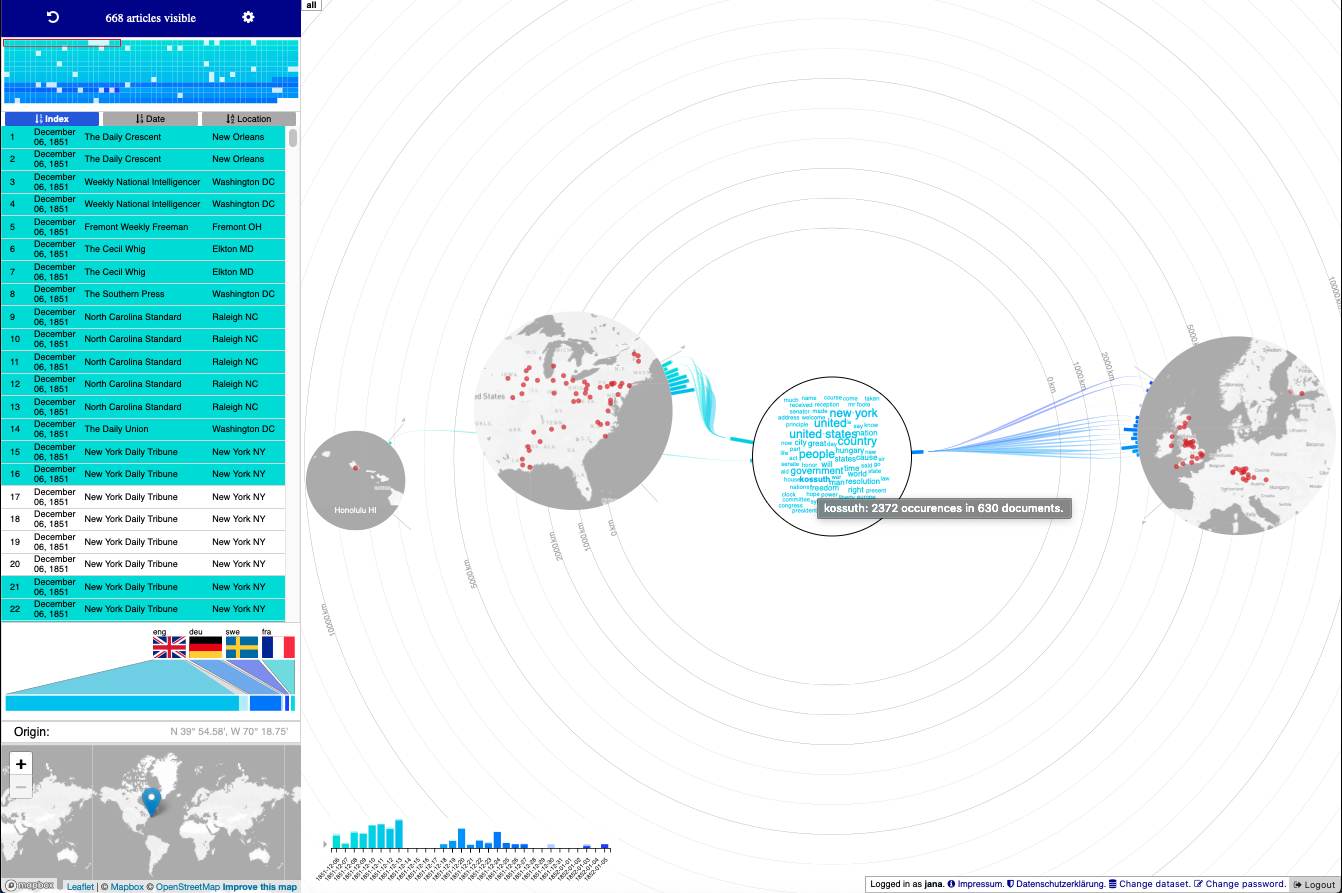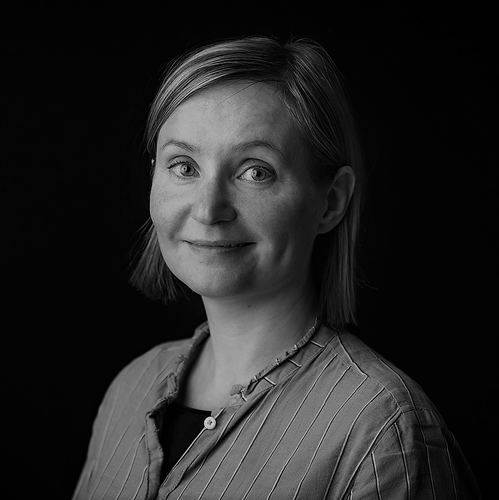Mila Oiva (PhD) is a Cultural Historian, digital humanist and an expert on Russian and Polish history. Dr. Oiva is currently working as a Senior Research Fellow at CUDAN ERA Chair for Cultural Data Analytics and School of Humanities, Tallinn University. Her research interests focus on circulation of knowledge. She is involved in projects studying the phenomenon through the 19th century global news flows, contemporary Finnish and Russian internet forum discussions on medieval history, and the Cold War era transnational information circulation between Polish, Finnish and Soviet foreign trades. She was a visiting Fulbright scholar at the Institute of Slavic, East European, and Eurasian Studies (ISEEES) at UC Berkeley, and participated in the Culture Analytics long program at the Institute for Pure and Applied Mathematics (IPAM) at UCLA.
My Research

This presentation derives from case study conducted during the project »Oceanic Exchanges: Tracing Global Information Networks in Historical Newspaper Repositories, 1840-1914«. Oceanic Exchanges seeks to find patterns of text reuse and infromation flow across digitized historical newspaper collections, including across languages. Collections within the corpus include the Austrian Newspapers Online, Bavarian State Library, British Newspaper Archive, Cengage Newsvault, Chronicling America, Europeana, Hemeroteca Nacional Digital de México, National Library of Australia’s Trove, National Library of Finland, National Library of the Netherlands, National Library of Wales, and New Zealand’s PapersPast.
Abstract
Transregional Networks in Literary Journals of Early Modernity
Connected by telegraph wires, letters, railways, steamships, exchange networks, and extensive reprinting practices, newspapers by the mid-nineteenth century seemed to increasingly function as part of the infrastructure of globalization and/or as a distributed information network. Yet scholars of new imperial history have resisted presentist metaphors like »network,« preferring studies of the limiting conditions of the nineteenth-century press. For instance, Simon Potter proposes the concept of an »imperial press system« to better account for its asymmetrical coverage, hierarchies of power, and material infrastructure. This paper emerges from a larger project called Oceanic Exchanges that tries—through computational and comparative methods—to engage nineteenth-century newspapers as an international system, while also elucidating the particular conditions and structures of power that governed it. This paper offers a glimpse of this »international press system,« as we might call it, in the case of the Hungarian revolutionary Lajos Kossuth (1802-1894).
In December of 1851, Kossuth traveled through Europe to the United States on a publicity campaign to secure support for Hungarian independence. His voyage down the eastern seaboard, ultimately arriving in Washington, DC, was exhaustively covered by not only the American press but by an increasingly connected system of international newspapers. Newspapers stirred the crowds that flocked to his speeches, inspired far-flung editors to adapt Kossuth’s messages, and allowed Hungarian political operatives to discredit Kossuth and manipulate the news network itself. Kossuth judged his mission a failure (the US declined to get involved), but we suggest that the significance of his trip lies elsewhere. His case study offers an interesting view on the complexities of a globalizing information system, as news propagated through press connections, and different interpretations of the events competed with and complemented each other, locally, regionally, and internationally.
Recent Publications
Oiva, Mila, Asko Nivala, Hannu Salmi, Otto Latva, Marja Jalava, Jana Keck, Laura Martínez Domínguez, and James Parker. »Spreading News in 1904. The Media Coverage of Nikolay Bobrikov’s Shooting.« Media History 25, no. 3 (August 11, 2019): 1–17.
Oiva, Mila. »Topic Modeling Russian History.« In The Palgrave Handbook of Digital Russia Studies, edited by Daria Gritsenko, Marielle Wijermars, and Mikhail Kopotev. Palgrave Handbooks. London: Palgrave Macmillan, 2021.

